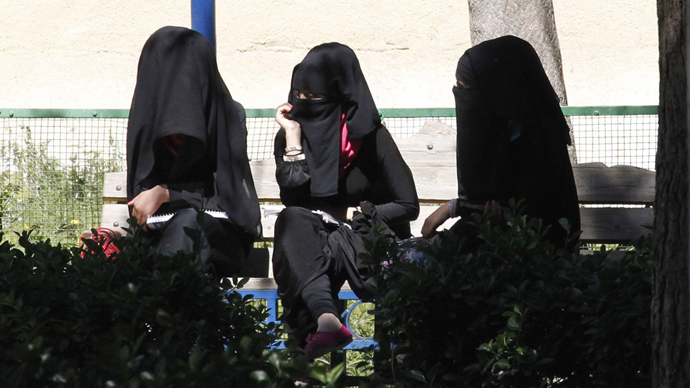Dutch govt approves partial ban on face-covering veil in public places

The Dutch cabinet has approved plans for a partial ban on face-covering veils in public areas, including schools, hospitals and public transport. The government says the proposal does not target religious groups.
“Face-covering clothing will in future not be accepted in education and healthcare institutions, government buildings and on public transport,” the government said in a statement Friday.
Prime Minister Mark Rutte told journalists that the ban does not apply to wearing burqas or niqabs in the street, but only "in specific situations where it is essential for people to be seen," or for security reasons.
He added that the government had “tried to find a balance between people's freedom to wear the clothes they want and the importance of mutual and recognizable communication,” and that the proposal does not have a “religious background.”
Those found in violation of the ban could be fined up to €405 (US$450).
The proposed law, from Interior Minister Ronald Plasterk, will now be sent to a panel of legal advisers for assessment. To become law, the proposal would have to be passed by both the lower and upper chambers of the Dutch parliament.
The proposal does not come as a surprise; it was agreed that a new bill would be drawn up by the coalition partners of Rutte's VVD party and the PvdA party when they formed a coalition in 2012.
A previous bill which proposed the banning of face-covering veils on the street will now be withdrawn, as the government "sees no reason for a general ban that would apply to all public places." It dated from Rutte's previous government, which was supported by anti-Islam politician Geert Wilders.
Wilders told Dutch television on Friday that the newly proposed measure is "weak.”
Between 100 and 500 women in the Netherlands wear face veils, most of them only occasionally, according to state broadcaster NOS.
Neighboring France and Belgium have more restrictive bans which prohibit the wearing of face veils in public. Certain cities in Europe have also banned the burqa and niqab – including Barcelona and some towns in northern Italy.
A number of far-right movements across Europe have made banning the niqab a political objective.












